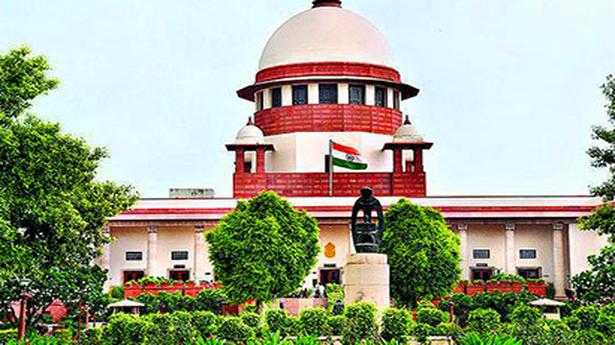
SC ruling on abortion comes as a ‘ray of hope’, say activists
The Hindu
The judgment is hailed as progressive as it entitles all women a right to safe and legal abortion along with an emphasis on their right to bodily autonomy without authorisation from third party
The historic judgment of the Supreme Court bench led by Justice Chandrachud that unmarried women in a consensual relationship are also entitled to safe and legal abortion along with its strong emphasis on women’s right to bodily autonomy without the need for authorisation from a third-party to access abortion was welcomed as “progressive” and a “ray of hope” at a time sexual and reproductive rights have come under threat globally.
“This ruling interprets the provisions of the Medical Termination of Pregnancy Act, 1971 in a progressive manner and questions the unreasonable classification made by this law. This interpretation is the law of the land and will ensure that single women seeking abortion beyond 20 weeks cannot be refused on the ground of the narrowness of the law,” said Anubha Rastogi, Independent Lawyer and CAG member, Pratigya Campaign.
Also Read | Sexual assault by a man of his wife can take the form of rape: Supreme Court
The SC judgment followed a petition seeking inclusion of unmarried women within the ambit of Rule 3 B of the Medical Termination of Pregnancy Rules 2003 amended in October 2021 for abortion between 20-24 weeks of gestation period. The rule defines seven different categories of women who could access abortion within this gestation period, including survivors of sexual assault or rape or incest, minors and women with change of marital status during an ongoing pregnancy. Such women have to obtain a permission from two doctors, who have to be of the opinion that its continuance could either risk the life of the woman, or the child. For an abortion upto 20 weeks permission of one doctor is sufficient.
Activists and advocates often rue that abortion right is not an absolute one in India, but conditional, and women have no agency as they have to seek the permission of a medical practitioner. The SC on Thursday recognised this gap, calling it a “provider-centric” law, and asserted that reproductive autonomy “requires that every pregnant woman has the intrinsic right to choose to undergo or not to undergo abortion without any consent or authorisation from a third party”.
The court also liberally interpreted Section 3 B and said a variety of changes in “material circumstances” could be grounds for seeking abortion between 20-24 weeks such as when “a woman loses her job or if domestic violence is perpetrated against her or if she suddenly has dependents to support” or when she is “diagnosed with an acute or chronic or life-threatening disease which impacts her decision on whether to carry the pregnancy to term.”
“At a time when sexual and reproductive health and rights are under threat globally, this progressive judgment stands out as a ray of hope”, said V.S. Chandrashekar, Campaign Advisory Group Member, Pratigya Campaign.

The girl, who was admitted to Aster CMI Hospital with alarming breathlessness and significant pallor, was diagnosed with Wegener’s Granulomatosis (now known as Granulomatosis with Polyangiitis or GPA), a rare autoimmune condition that causes spontaneous bleeding in the lungs, leading to acute respiratory failure.

ACB files case against IPS officer N. Sanjay in Andhra Pradesh. The official is accused of manipulating the tender processes for awarding contract for development and maintenance of AGNI-NOC portal, and conducting awareness meetings for SC/STs. It is alleged that the total value of properties stolen, or involved in the case is estimated at ₹1,75,86,600.









